

Education is the very foundation of every professional. This fact makes it important, regardless of whether you tackle elementary, high school, college, or postgraduate levels. It became so important that it has been included in the top priorities and goals of each individual. For this very reason, a school administration has to see to it that its departments are introduced to continuous improvement for it to satisfy their market’s demands. And, the best way to do so is through the process of planning. During such a process, a school outlines sets of strategies and the project action plans that would likely sustain the business in 3 year’s time, more or less. A good example of this is a one-page strategic plan for the whole school approach. Get more samples by having a look at our Free 15+ School Strategic Plan Examples in Microsoft Word, Google Docs, and Apple Pages.
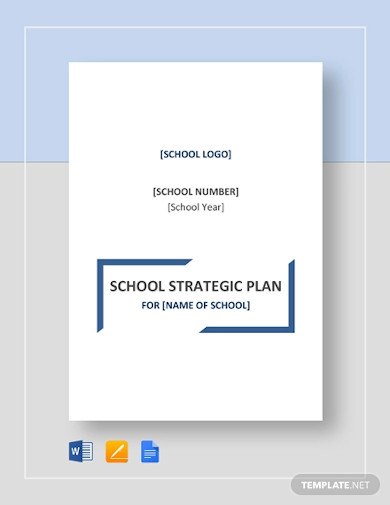

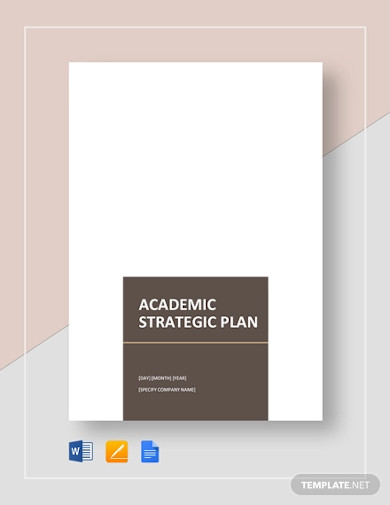
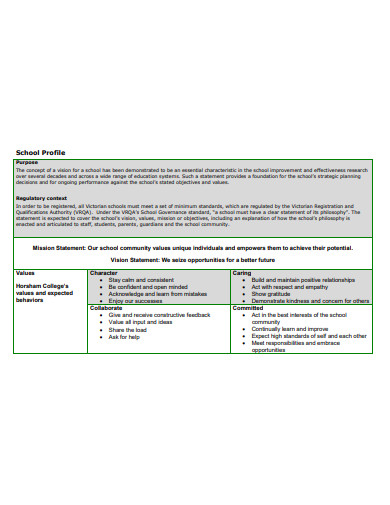
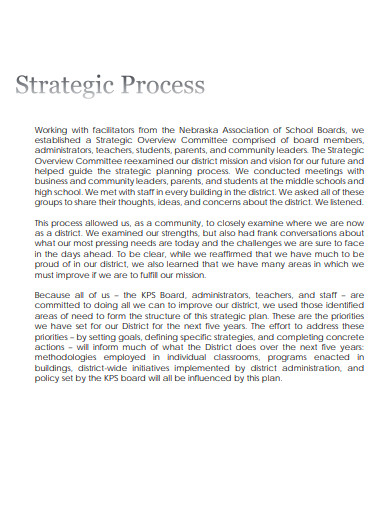
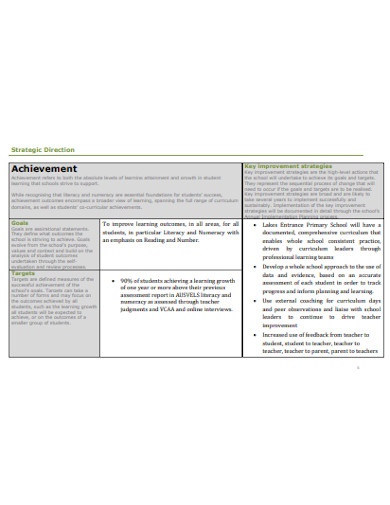
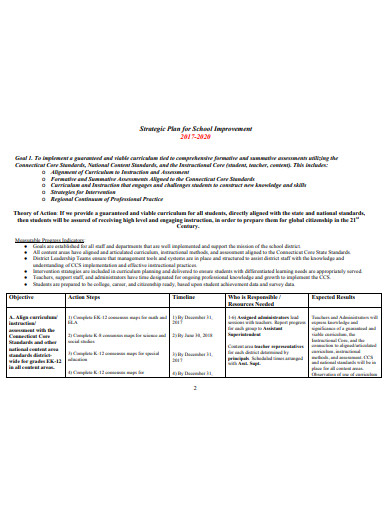

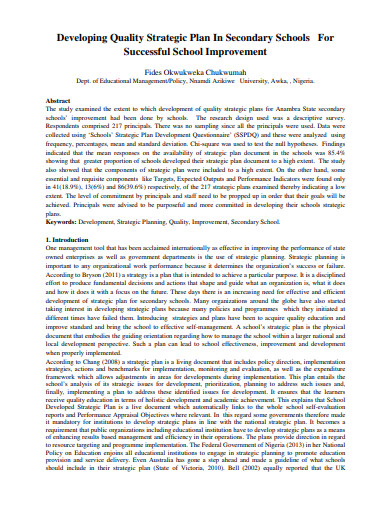

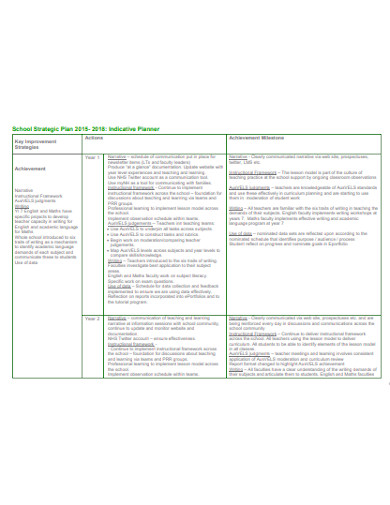
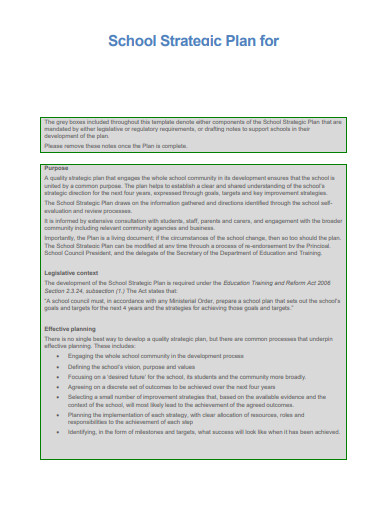
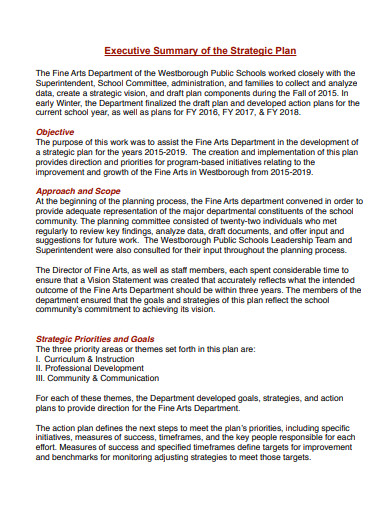
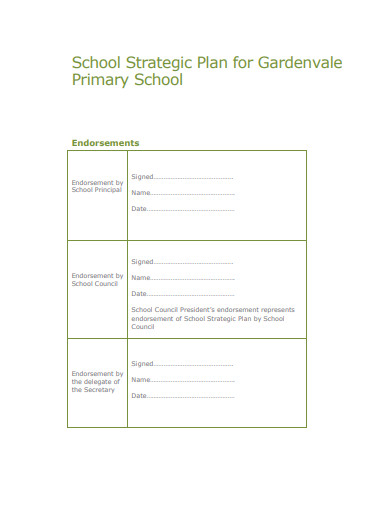
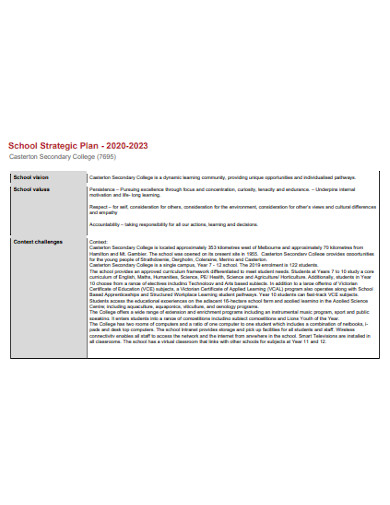
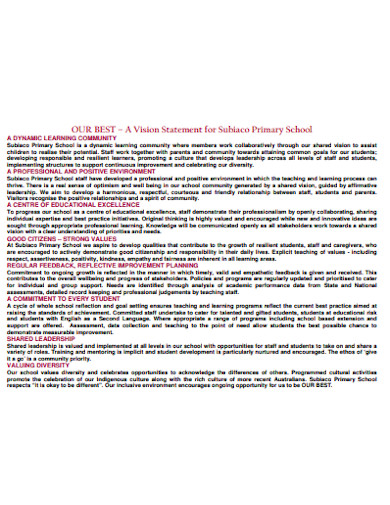
A school strategic plan is a document that establishes a certain institution’s development path with the goals, objectives, strategies, and activities taken into account. In fact, Eric Vo wrote in his 2018 article for Hartford Insurance’s website that if such a plan is prepared well, it can lead to the awakening of an organization and its employees’ responsiveness to both opportunities and challenges. In other words, a high school strategic plan, college strategic plan, or an academic strategic plan is not just good for a school to generate profit but also for it to sustain itself when disadvantageous circumstances arise.
The keys to making a successful strategic plan can be broken down into three, including team chemistry, communication, and adaptability.
Team chemistry, just like in sports, plays a crucial role in smoothening the functions of every employee in a company, which can gradually lead to the success in any undertaking, such as the implementation of strategic planning. It can be gained by also planning, implementing, and maintaining an employee engagement strategy and communication plan.
In another aspect, the success of the strategic plan also relies heavily on the adaptability of a company and its constituents—the main reason why is that such a plan is set for long-term company goals. Within the timeframe of its project implementation plan, a lot could happen. With the ability to adapt to sudden changes, the project workflow will not be affected, and the overall strategic plan will be carried on.
Planning is one of the hardest parts of a project. Apart from elongating your patience, you also have to be very careful in taking each step of the process. Given its difficulty, it is understandable that you have to go through a series of process analysis, and will be answering a couple of project evaluation questionnaires. And, failing those can cause a loss of your time, effort, and money. To prevent your company from losing any, we have set our list of guidelines and insights below on how to successfully organize a school strategic plan.
There are many aspects in a school that needs to be developed for it to cater to more students, to have better business results, and to prepare its constituents from unforeseeable endangerments. To narrow down your focus as you organize your business development strategies, you have to identify which among the rooms for development you should be working on.
Before you go on in conceptualizing your plan, know what resources school has. This is so it will be easier for you to manage the asset allocation that will be useful in the pursuance of your future strategic plan.
The goals and objectives are the main drivers of any plan. This is why setting your short-term and long-term goals are necessary. With these drivers in hand, your company employees will have a clearer overview of what they should prioritize.
It takes more than just one mind to achieve a successful strategic plan for your school. Therefore, you need to call in people who have long experiences in your school’s management – executive stakeholders. Creating an executive meeting agenda may be a hassle, but the fruit that the meeting bears will surely be sweet and highly beneficial.
Once you have discussed your strategic plan with the stakeholders, it is time to put them into technical writing. Why? Obviously, the reasons are mainly for formality, legality, and guidance. By documenting the details of such a plan in your data inventory, all concerned employees will have a good reminder about their tasks, responsibilities, and targets.
After drafting your plan’s specifications, present them to the stakeholders one more time. This is for you to identify faults and garner recommendation reports from them that can make your strategic plan more effective and efficient. Once the suggestions are collected, revise your output accordingly. This step might be repeated until the stakeholders are satisfied.
A standard-based strategic plan must include the following:
– Mission, Vision, and Values Statements
– Goals and Objectives
– Strategies and Relevant Activities
A strategic plan gives out the broader context of how to achieve long-term goals. A tactical plan, on the other hand, focuses more on detailing the activities to reach the set goals.
Yes, they are. Schools offer services, which take forms of educational programs, to students who are their customers or clients in exchange for a specific amount of money.
Almost all individuals know how important schools are in our society. And businesses, by nature, have to build themselves up for it to cope up with the changes, especially the ones that influence the customer preference. While doing so, they also have to take into account several internal factors. In line with this, a school strategic plan is a perfect document that must be developed to ensure the completeness of a development project.